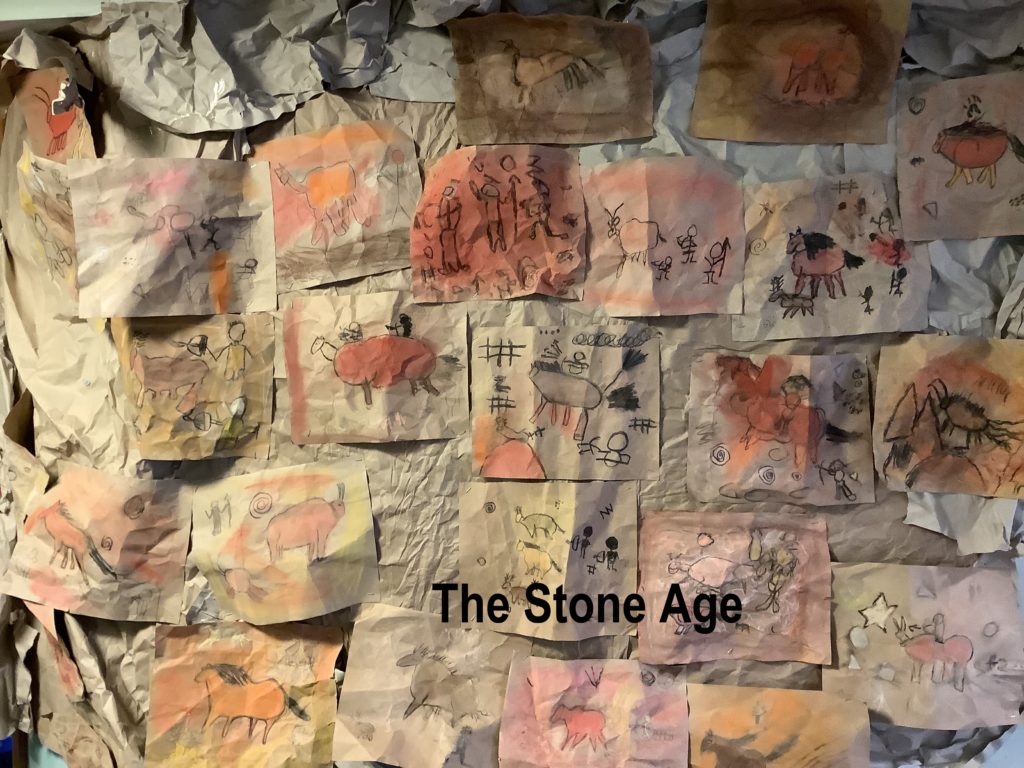History
Our aims for history at St Thomas Becket
We aim to provide a high quality history curriculum for our pupils which will foster a curiosity and fascination for history and develop an understanding of Britain’s past and how history has influenced and shaped their local area, their country and the wider world. We also want our pupils to understand their place in the world and the impact that events in the past have had on their lives today. In addition to this, we recognise the important role that history plays in preparing our children with skills that they can use for life, raising their aspirations, and helping them to understand how to be good and responsible citizens, and to understand change and development in society.
In Key Stage One, the children’s learning in history focuses on the world around them and their living memory of history before moving to events that go beyond living history. This will ensure a firm foundation for Key Stage Two history. In Key Stage Two, the history curriculum is taught in chronological order to enable children to reference previous events in time and to build on this prior learning over the course of both of their year group’s topics and from year to year. The key concepts of chronology, invasion, settlement, empire, civilisation, law and legacy are threaded throughout all of our history topics across the school in order to build on and develop the children’s historical knowledge and understanding and to enable them to make links in their learning.
Our children are encouraged to ask perceptive questions, think critically, weigh evidence, sift arguments, and develop perspective and judgement. Through the teaching of history, we endeavour to teach children to understand the complexity of people’s lives, the process of change, the diversity of societies and relationships between different groups, as well as their own identity and the challenges of their time.
How we teach history at St Thomas Becket
To ensure high standards of teaching and learning in history at St Thomas Becket we implement a curriculum that is progressive throughout the school and we ensure that history has the same importance given to it as the core subjects.
We intend for our children to have real life experiences and learn about history in an active and creative way and therefore visitors and trips form a fundamental part of our curriculum. Links to geography and other subject areas are also explored. We make the most of our locality and our proximity to London; we study the history of the local area and we ensure that the children visit the wide range of museums, and galleries that are close by. We also invite in visiting experts during the year to enrich our children’s learning in history.
History at St Thomas Becket is taught in blocks throughout the year, so that children develop depth in their learning. Two history topics are taught in each year group and these topics last for approximately half a term each. The key knowledge and skills that children should learn and develop throughout each topic have been mapped to ensure progression between year groups throughout the school. History is taught following the Learning Challenge Curriculum model of starting with a ‘Big Question’. Teachers plan their ‘Big Question’ as a hook to get the children thinking about what they will be learning. Enrichment opportunities and opportunities to apply learning across other subjects are a vitally important part of each year group’s planning process.
What our children will have learnt in history
By the end of their time at St Thomas Becket, our children will have a thorough understanding of important periods in history from the Stone Age to the present day. They will be able to draw comparisons and make connections between different time periods and their own lives. Our children will be able to talk about the key historical concepts of chronology, invasion, settlement, civilisation, law and legacy and explain how these have shaped the world in which we live and how we can learn lessons from the past in order to help us shape the future.
